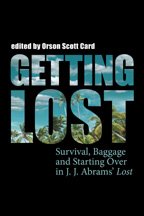
In developing my single mother superhero, the Matriarch, I found a lot of juice in the notion of putting her various senses of duty into conflict with one another. I don't claim that approaching a story this way is particularly original -- after all, Spider-Man stories are often powered by a similar ethical clash (except that in Spider-Man's case, saving the world with his extraordinary abilities clearly trumps meeting his model wife for a night on the town). Still, it seemed that pitting the need of a mother to protect her son (specifically) against the needs of a superhero to protect the world (generally) might have a certain power.
Then I began to worry it was a non-issue: I mean, aren't many of the end-goals of feminism already realized? I don't think I've ever met a person who believes a woman's place is only in the home (at least, no one who
says it so I can then berate them).
...mother's day mothers day...
Since discovering places like
When Fangirls Attack, I see that there is still a lot of debate, particularly in comics. Given that we're talking about a visual medium, it's not surprising that a lot of the discussion relates to how women are depicted. (I've
already gotten notes protesting the look of The Matriarch, and it's only in the submission phase, but I'm very happy with the way Steven and Luisa bring Sherry to life; there is a certain allure, for me at least, in subverting the usual cliches of the women who populate comics, but I scratch that itch every week with the character Gerd in my webcomic,
Elf-Help).

Anyway, just musing out loud -- and glad to see that so many other folks out there are too.
Links to penciled pages of
The Matriarch can be found
here. (If you'd like to see the ten pages we've finished, drop me a note).











